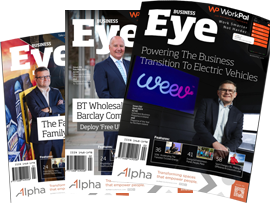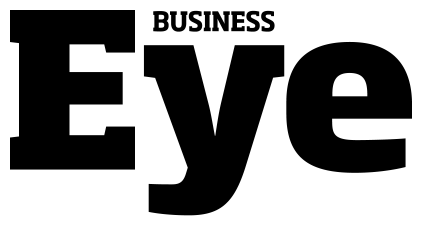The survey was less positive about the recent political climate. The findings reveal a poor rating of the NI Executive and Assembly’s performance, with 78% rating it as poor or very poor, 21% rating it as ok, and just 1% rating it as good. The survey was taken before the resignation of former First Minister, Paul Givan.
The findings show that economic recovery from the pandemic is still at an early stage. 57% say that there is still some way to go in terms of recovery, while 30% say that Northern Ireland remains in a very challenging position.
The survey from Chartered Accountants Ulster Society also shows that despite a generally improved outlook for the year ahead, a majority of Chartered Accountants say the number of businesses in financial distress is increasing (44%) rather than falling (13%) as the impact of COVID-19 continues to have an effect.
There was, however, some uplift in optimism around prospects for the local economy in 2022 with 28% seeing prospects as good or very good for the coming year, up from just 10% in 2020. 20% view prospects for the economy as poor or very poor, down from 41% in 2020.
Key Issues
The biggest negative issues for the year ahead are rising energy costs (45%), supply chain disruption (41%) and current political conditions in Northern Ireland (40%) according to the survey. A recovering global economy is seen as the biggest positive factor (48%).
Brexit has moved down the list of challenges (33%) and EU Exit opportunities are now a consideration with 81% saying that the Northern Ireland Protocol presents a major opportunity for the Northern Ireland economy. The survey also shows that Chartered Accountants feel that the Protocol issue has been handled poorly, with 80% saying the Protocol impasse is damaging Northern Ireland’s international reputation.
Only 2% feel that the EU Exit has been handled well by the Northern Ireland Executive. 5% say that the UK Government has handled it well, while the EU scores more highly with 33% feeling it has handled the process well.
When asked how EU Exit has impacted their business, one in three respondents believe that it is leading to a positive impact on trade but almost half say there have been negative impacts on trade with Great Britain. Over 60% feel there have been negative effects on their business in terms of access to EU workers and increased business costs. 38% say that the EU Exit has had a negative effect on profit growth.
The survey shows a significant rise in skills shortages with three in five (62%) businesses or organisations experiencing skill shortages (up from 48% at the start of 2020 pre COVID-19 and full EU Exit).
Fiscal Devolution
The survey reveals very low confidence around the capacity and capability of the NI Executive to take on more tax varying powers. 79% of those surveyed say the NI Executive has weak or very weak capacity and capability for dealing with new devolved tax powers.
Corporation tax is considered the most appropriate tax to devolve with 46% saying it is suitable or very suitable.
43% of respondents say that the current non-domestic/business rating system is poor as a basis for taxing property in Northern Ireland, while only 7% view it as good.
Working Practices
In terms of future working patterns, hybrid working looks to be the most significant, with 56% of those surveyed believing they will combine both working from home and at the office going forward.
The survey shows an even split around whether workers feel they can be as productive working a four-day week and just over a third (36%) believe employers would support some permanent form of hybrid working.
Comment
Maeve Hunt, Chairperson of Chartered Accountants Ulster Society which represents over 5,000 Chartered Accountants in Northern Ireland said: “There are certainly some positive signs of an improving economic outlook as we begin to look towards a post-pandemic future, but it is clear that the last two years have taken a heavy toll on many local businesses.
“Our survey shows a much more optimistic view of growth for the local economy, but we should also remember that we are growing back from a low base due to the impact of COVID-19 and the uncertainty around the UK’s exit from the EU.
“Business leaders are voicing some clear concerns about rising energy costs, supply chain disruption and current political situation in Northern Ireland.
“Despite some misgivings in the survey about the performance of the Executive and Assembly, it is vital that we have leadership taking key decisions, encouraging business investment and better public services. As Northern Ireland begins to emerge from the COVID-19 pandemic, leadership and real decision-making is needed now more than ever.
“The longer that political instability continues, the more difficult it is for local business to contribute to growth, jobs and a better quality of life in Northern Ireland.”
Independent economist Maureen O’Reilly, who formulated and analysed the survey of Northern Ireland’s Chartered Accountants said: “Members work across all parts of the economy in Northern Ireland. That includes industry, the wider private sector along with the public and third sectors and as such their views provide a very valuable and realistic assessment of how the Northern Ireland economy is performing.
“This suggests that recovery is definitely underway and prospects are improving but that is couched by concern around the extent of financial distress in the economy that will be tested further by the significant inflationary pressures that firms and households are now facing.
“Many of the biggest issues facing the economy are outside the control of the NI Executive and government here but members are clear that political leadership and stability is one of the most significant barriers not only to recovery but in taking greater ownership of decisions, particularly around how the tax system can support and drive local economic growth. Another critical concern is access to skills which has been exacerbated by COVID and is fast reaching a level that will hold back the economy going forward”.
A summary of key findings:
· 66% felt that the economy was growing; 19% of local Chartered Accountants feel that the local economy is stagnant; 12% believe that the economy is contracting.
· 30% say that Northern Ireland is still in a very challenging position in terms of recovery from the pandemic.
· 44% say that the number of businesses in financial distress is increasing. 13% say the number is falling.
· 28% feel the outlook for the NI economy in the year ahead is ‘Good’ or ‘Very Good’; 52% feel the outlook is ‘Fair’; 20% say ‘Poor’ or ‘Very Poor’.
· Rising energy costs (45%), supply chain disruption (41%) and political conditions in NI (40%) are seen as the most negative issues for the economy.
· 81% say the NI Protocol represents a major opportunity for the Northern Ireland economy.
· 62% say their business or organisation is experiencing skills shortages (up from 48% in 2020)
· 78% rate the performance of the NI Executive and Assembly as ‘Poor’ or ‘Very Poor’; 21% rate it as ‘OK’; 1% rate it as ‘Good’
· 79% of those surveyed say the NI Executive has weak or very weak capacity and capability for dealing with new devolved tax powers.
· 43% of respondents say that the current non-domestic/business rating system is poor as a basis for taxing property in Northern Ireland, while only 7% view it as good.
· 56% believe that hybrid working patterns will be most common in the year ahead.
· 106 Chartered Accountants took part in the survey.

Maeve Hunt, Chair of the Chartered Accountants Ulster Society




